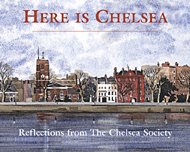Playing Monopoly with Sir Max
Also in today's blog :
The revival of subscription publishing
Horsey little girls
The £1,000 cookery book
Loving…Not Loving…
The state of the middlebrow novel
Playing Monopoly with Sir Max
After reading a piece by one of my favourite columnists, Theodore Dalrymple, at The Spectator online yesterday afternoon - and wondering who will replace Boris Johnson as editor after Christmas - I spotted the name of another favourite writer, Sir Max Hastings.

This is one of his diary notes
"Tip for a sure-fire Christmas present: a personalised Monopoly set, which my children gave me last year. Dial up My Monopoly on the internet, and you can rewrite the board on screen with somebody's favourite houses, restaurants, resorts, clubs, dogs. A fortnight later, the whole thing appears through the post with cards as well as board appropriately printed up. It adds a delightful dimension to family games."
It will cost £95 plus £5 p&p, expensive compared with the standard board game at £12.99 from Amazon UK where I read
"Invented during the Great Depression in 1934, Monopoly has since been translated into 26 different languages and has sold over 200 million sets worldwide. It's a small wonder that most people have grown up with Monopoly.
Monopoly, with its thrilling property-owning rules and objectives, is highly educational. For early Monopoly beginners of seven years, it encourages arithmetic skills. At the same time it teaches older players about money management, property management, basic economics, the art of negotiation and compromise (just how much are you prepared to trade for Mayfair). In many ways Monopoly also mirrors the lessons of life--chance and luck can throw even the best-laid plans astray, and if you 're not prepared to take the big risks you're unlikely to be life's big winner."
The story of the invention of Monopoly is a complicated tale.
The revival of subscription publishing
This week, by chance, I came across a book I should have bought in London in September, had I known it existed.

Here Is Chelsea is edited by Jane Dorrell, with an introduction by Tom Pocock. Apparently the Chelsea Society, founded in 1927, has, for many years, printed an assortment of essays celebrating all aspects of Chelsea, past and present, at the end of each of its Annual Reports. The book is a selection of the most interesting. It begins with an account of the Royal Hospital, by General Sir Clive Liddell and ends with Richard Ballard's Life and Times of Sir Hans Sloane. 2003. "In between, thirty-five elegant essays add up to make this delightful pot-pourri of a book a lasting keep-sake and celebration of one of London's most attractive boroughs."
I came across the book at Elliott & Thompson's site after reading a piece in Publishing News [25 November issue] about their plan to revive book-buying by subscription as was done with works by John Milton, Samuel Johnson and William Blake.
Elliott & Thompson are hoping that 200 people will be prepared to subscribe £25 each to read Mentors & Friends by bookseller Ian Norrie whose subjecs will include many of the best-known names in the book world in recent decades.
I have Ian Norrie's A Hampstead Memoir on my shelves and have no doubt Mentors & Friends will be extremely readable. But I'm not sure I agree with PN's Bookpeople columnist's comment, "Worth five crisp fivers of anyone's money, I'd say."
I don't belong to the "if you want it, have it" school of thought and £25 [$43] still buys a lot of books in a second-hand bookshop, or at Amazon.
David Elliott of E&T told PN
"Ironically, the present economic strictures of publishing and retailing, whether right or wrong, indicate that a conventional publishing procedure would probably render the book economically unpublishable. So we have decided to recreate a time-honoured tradition of appealing for subscribers to join in the process of seeing the book produced, by ordering numbered and signed copies."
Horsey little girls
I was not a horsey little girl, but I have had a horsey heroine in one of my mainstream novels and when I spotted the name Christine Pullein-Thompson in a newspaper's list of obituaries on Tuesday, I clicked on the link.
 The obit begins
The obit begins "Christine Pullein-Thompson who died on December 2 aged 80, was a prolific writer of children's books, mostly about horses; with her twin Diana and their elder sister Josephine, who wrote along the same lines, she rivalled Enid Blyton in the affections of young girls fond of ponies. Christine, the quietest of the three, was the most productive; she wrote more than 100 books, translated into 12 languages."
The obit mentioned a memoir, Fair Girls and Grey Horses. It is published by Allison & Busby at whose site you will read
The twins were Diana and Christine who, with their elder sister Josephine, have written over 150 books which have sold in millions around the world. Now, over 50 years after the publication of their first book, the three sisters have jointly written about their extraordinary childhood with lovable but often unreliable animals and unforgettable humans. ‘...they gave me intense pleasure’Jilly Cooper ‘A happy book, full of nostalgia but with no regrets’Times Literary Supplement"
The £1,000 cookery book
What kind of person would spend £1,000 on a cookery book, even a Ptarmigan Publishing limited edition bound in dark sea-green Galuchat leather, described in The Bookseller [Dec 2 issue] as "the world's most expensive hide".
As I had never heard of this leather, I wanted to know more and discovered that
"Galuchat is the skin of various fish - small sharks, spotted dogfish and skate. Under Louis XV it was dyed and used to cover certain luxury objects. It returned to fashion in 1910 and between1925-50 when it was used by cabinetmakers like Clément Rousseau to cover entire pieces of furniture."
The cookery book's title is Dom Pérignon Vintage 1998:The Collection. It consists of memories, stories and recipes by 35 chefs, plus interviews with "luminaries" such as Philip Green, Joanne Harris, Karl Lagerfeld and Sir Roger Moore. A standard hardback edition can be bought for £40.
When Mills & Boon was run by the Boon brothers, editorial director Alan Boon used to order Dom Pérignon champagne as an apéritif when his authors joined him for celebratory lunches at The Ritz, Claridges and Le Gavroche. Those glamorous days are long gone and I count myself lucky to have enjoyed them.
Loving…Not Loving…
Am I alone in feeling uncomfortable with The Bookseller's new feature in which booksellers comment on a book under the headings I'm Loving… and I'm Not Loving?
On December 2 the bookseller was Frances Harvey of Waterstone's at 311 Oxford Street, London.
The book she loved was Ruth Rendell's End in Tears, and the book she didn't love was The Lighthouse by P D James. I felt her comments on the latter were unnecessarily unkind to the doyenne of crime fiction.
What is the point of slamming books? Surely what subscribers to The Bookseller want to read is reliable praise for excellent books. Why not re-jig this feature so that the first heading is Unputdownable… and the second is Also Highly Recommended…
The state of the middlebrow novel
I intended to pursue this topic started last Sunday. However techie problems during the week have meant that my spare time has been spent trying to cure them rather than brooding over the scarcity of novels aimed at readers who want to be entertained but also to finish a novel knowing more about life, art, music, the world etc than when they began it.
As some of you know, among the bees in my bonnet is the belief that "creative writing" courses and writing workshops are A Bad Thing. I asked two well-known novelists who, together, will be giving such a workshop next month to explain why they take a different view. But as many people are now totally involved in realworld Christmas preparations and have little or no time for online activities, I'll post what the two authors had to say when life is back to normal early in January.
